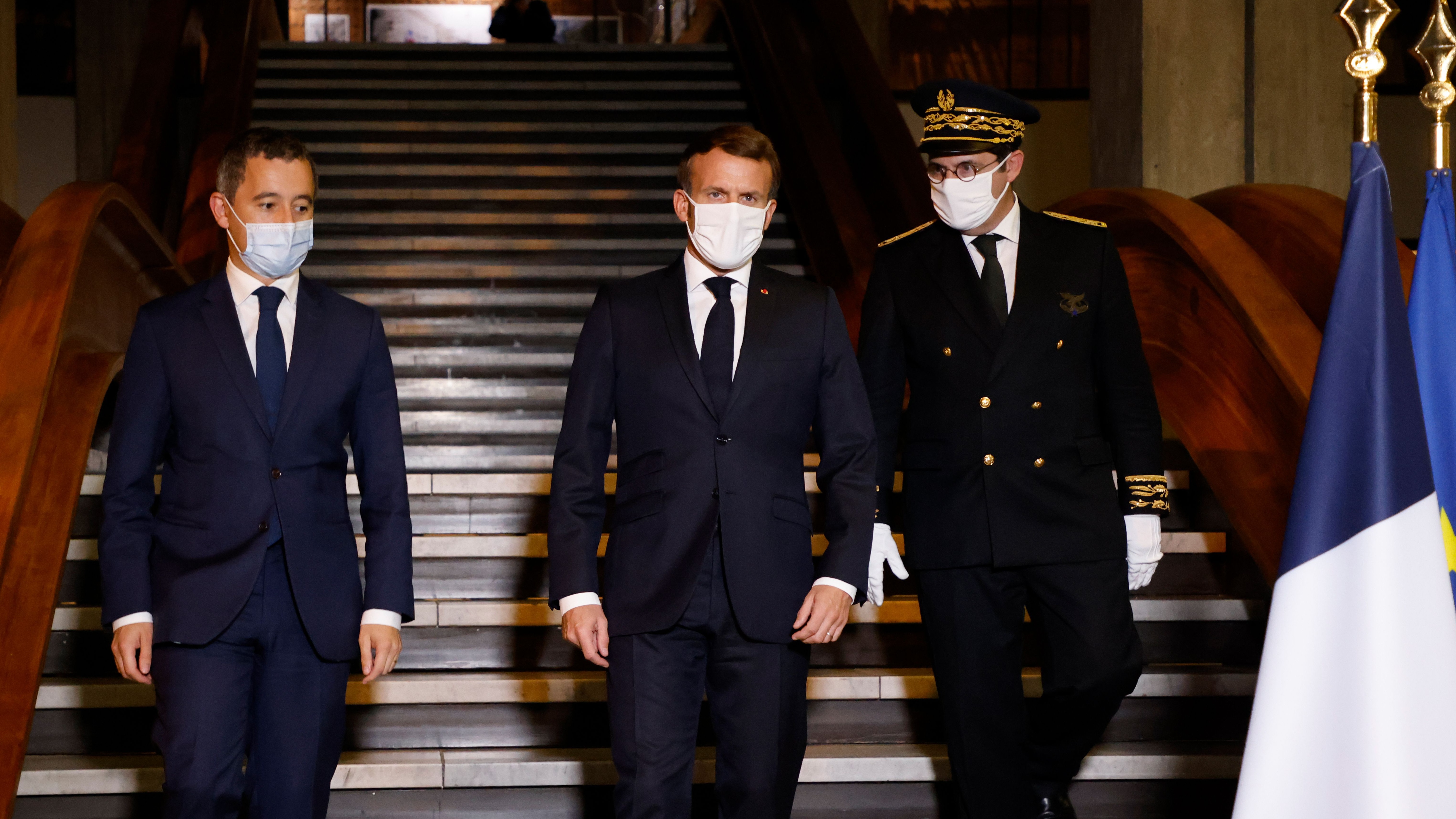France launches raids on radical mosques in crackdown on ‘political Islam’
Interior minister says inspections are part of ‘massive action against separatism’

A free daily email with the biggest news stories of the day – and the best features from TheWeek.com
You are now subscribed
Your newsletter sign-up was successful
French police have launched a series of raids on mosques and prayer halls across the country as part of what Emmanuel Macron has called a crackdown on “political Islam”.
The drastic action follows a series of terror attacks and will see all of France’s 2,600 places of Muslim worship inspected, with plans already in place to close dozens. Interior Minister Gerald Darmanin said the first wave of raids, beginning today in Paris, were part of “a massive and unprecedented action against separatism”.
“Seventy-six mosques suspected of separatism are going to be inspected in the coming days and those that should be closed will be closed,” he told French radio station RTL.
The Week
Escape your echo chamber. Get the facts behind the news, plus analysis from multiple perspectives.

Sign up for The Week's Free Newsletters
From our morning news briefing to a weekly Good News Newsletter, get the best of The Week delivered directly to your inbox.
From our morning news briefing to a weekly Good News Newsletter, get the best of The Week delivered directly to your inbox.
The right-wing minister, appointed by Macron in July, has been tasked with leading “an offensive against what Macron calls the separatist doctrines that incite terrorism and hostility towards the French nation and its values”, says The Times.
In a leaked note sent to regional security chiefs, Darmanin cited 16 specific addresses in the Paris region and 60 others around the country that are of concern to the ministry, France 24 reports.
Darmanin told RTL radio that only a small number of France’s Muslim places of worship were suspected of spreading extremism, adding: “We are far from a situation of widespread radicalisation. Nearly all Muslims in France respect the laws of the Republic and are hurt by that [radicalisation].”
Macron’s crackdown began in September but was accelerated following the beheading of French schoolteacher Samuel Paty in Paris and the murder of three people in an attack in Nice in October.
A free daily email with the biggest news stories of the day – and the best features from TheWeek.com
The French president has used the term “political Islam” to describe “ultraconservative Muslims closing themselves off from French society by, for example, enrolling their children in underground Islamic schools or forcing young girls to wear the Muslim headscarf”, says France 24.
In a speech in early October, Macron told a Paris audience that Islam was “a religion that is in crisis today all over the world”.
He spoke of a need to “free Islam in France from foreign influences” and build an “Islam des Lumières”, meaning “Islam of Light”.
Joe Evans is the world news editor at TheWeek.co.uk. He joined the team in 2019 and held roles including deputy news editor and acting news editor before moving into his current position in early 2021. He is a regular panellist on The Week Unwrapped podcast, discussing politics and foreign affairs.
Before joining The Week, he worked as a freelance journalist covering the UK and Ireland for German newspapers and magazines. A series of features on Brexit and the Irish border got him nominated for the Hostwriter Prize in 2019. Prior to settling down in London, he lived and worked in Cambodia, where he ran communications for a non-governmental organisation and worked as a journalist covering Southeast Asia. He has a master’s degree in journalism from City, University of London, and before that studied English Literature at the University of Manchester.
-
 What to know before filing your own taxes for the first time
What to know before filing your own taxes for the first timethe explainer Tackle this financial milestone with confidence
-
 The biggest box office flops of the 21st century
The biggest box office flops of the 21st centuryin depth Unnecessary remakes and turgid, expensive CGI-fests highlight this list of these most notorious box-office losers
-
 What are the best investments for beginners?
What are the best investments for beginners?The Explainer Stocks and ETFs and bonds, oh my
-
 Greenland’s capital becomes ground zero for the country’s diplomatic straits
Greenland’s capital becomes ground zero for the country’s diplomatic straitsIN THE SPOTLIGHT A flurry of new consular activity in Nuuk shows how important Greenland has become to Europeans’ anxiety about American imperialism
-
 Epstein files topple law CEO, roil UK government
Epstein files topple law CEO, roil UK governmentSpeed Read Peter Mandelson, Britain’s former ambassador to the US, is caught up in the scandal
-
 Iran and US prepare to meet after skirmishes
Iran and US prepare to meet after skirmishesSpeed Read The incident comes amid heightened tensions in the Middle East
-
 Israel retrieves final hostage’s body from Gaza
Israel retrieves final hostage’s body from GazaSpeed Read The 24-year-old police officer was killed during the initial Hamas attack
-
 China’s Xi targets top general in growing purge
China’s Xi targets top general in growing purgeSpeed Read Zhang Youxia is being investigated over ‘grave violations’ of the law
-
 Panama and Canada are negotiating over a crucial copper mine
Panama and Canada are negotiating over a crucial copper mineIn the Spotlight Panama is set to make a final decision on the mine this summer
-
 Why Greenland’s natural resources are nearly impossible to mine
Why Greenland’s natural resources are nearly impossible to mineThe Explainer The country’s natural landscape makes the task extremely difficult
-
 Iran cuts internet as protests escalate
Iran cuts internet as protests escalateSpeed Reada Government buildings across the country have been set on fire